#principles of design
Explore tagged Tumblr posts
Text
I'm going to have the nightshift for the rest of the week
which meeeaaaans I'll make a proper art style guide to Reverse1999(considering how much time I'll have) including the Elements of Art and Design(Line,Shape,Form,Color,Value,Space and Texture) and the Principles of Art and Design(Balance,Emphasis,Movement,Pattern/Repetition,Rhythm,Proportion,Variety and Unity)
I already picked out some in game CGs but if you have a fav you want me to look at feel free to share!
#r1999#reverse1999#reverse 1999#art#art analysis#art style study#style study#analysis#illustration#art study#principles of design#elements of art#art style guide#godofart#game#video game#game art#video game art
14 notes
·
View notes
Text
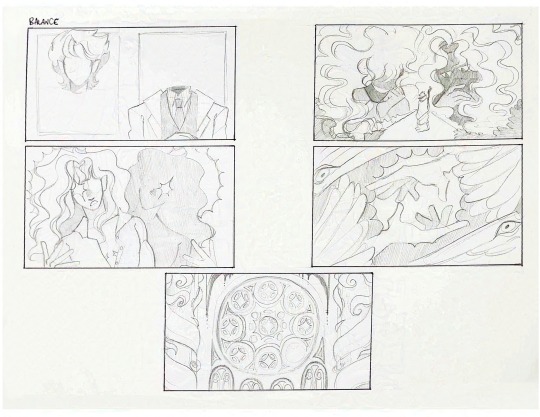





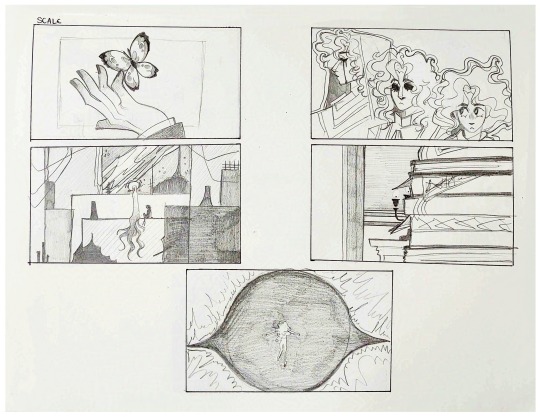

i love projects where i can draw my ocs and say its surrealism heheehe =3
#angelverse#cosmic horror#analog horror#horror art#original character#art#illustration#oc#fantasy art#design#principles of design#artists on tumblr#horror oc#slasher oc#killer oc#murder oc#scopophobia
8 notes
·
View notes
Text
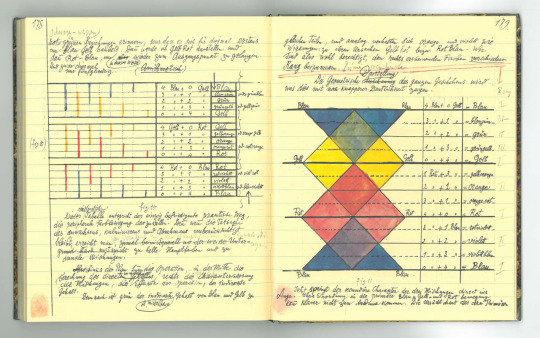
47 notes
·
View notes
Text
Elements of Art / Principles of Design (Term & Definition)
Elements of Art
Line: The path to guide the viewer, can be straight, curved, thick, thin, or shaped
Shape: Two-dimensional geometric or organic appearance
Form: Three-dimensional objects that include volume, mass, and depth
Color: Reflected/absorbed light; hues and tints express visual interest
Value: Light source in an image (if any); light to dark scale; shades & tints
Texture: The quality of a surface, how it looks & feels
Space: The illusion of an area around, between, and within to manipulate perspective
Saturation: The intensity of color or value
Principles of Design
Balance: The visual weight
Depth: The distance of spacing and overlapping of objects
Movement: Motion; seeing or feeling something move
Emphasis: Attention; what stands out more
Pattern: Repeating shapes, colors, lines, and symbols
Unity: parts cohesion; work together to form visual
Proportion: size relationships that create different visuals
Variety: Different types of other elements & principles within a design
3 notes
·
View notes
Text
I try to sleep and it’s like my brain explodes with ideas. Like right now, I wanna sleep but my mind is bursting thinking about how I could teach basic concepts of color and texture and principles of design through Minecraft. Then applying that knowledge to builds and explaining my process. Like my brain is going full nerd mode and it would be great at ANY OTHER TIME, but I NEED to sleep.
2 notes
·
View notes
Text
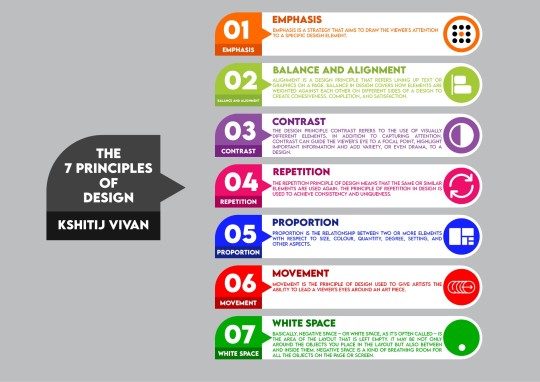
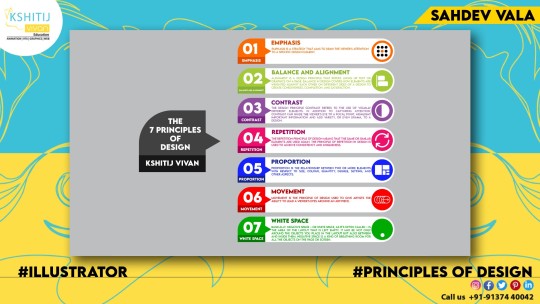
The 7 principles of design
#adobe #adobeillustrator #illustrator #illustration #vector #vectorart #Ai #graphicdesign #graphicdesigner #creative #creativegraphicdesigner #creativegraphic #creativedesigner #sahdevvala #valasahdev #kshitijvivan #kshitij_vivan #educationvala #educationcala.com #event posterillustration #illustrationposter #flatposter #vectorposter #principlesofdesign #7principelsofdesign #designprinciples #cheatsheet #infohraphic #infographicsdesign #infographicdesigb #infographicchart #infographicssheet
#adobe#kshitijvivan#sahdevvala#adobe illustrator#illustration#illustrator#design principles#principles of design#7 principles of design#educationvala
2 notes
·
View notes
Text
Spooky season movie vibes


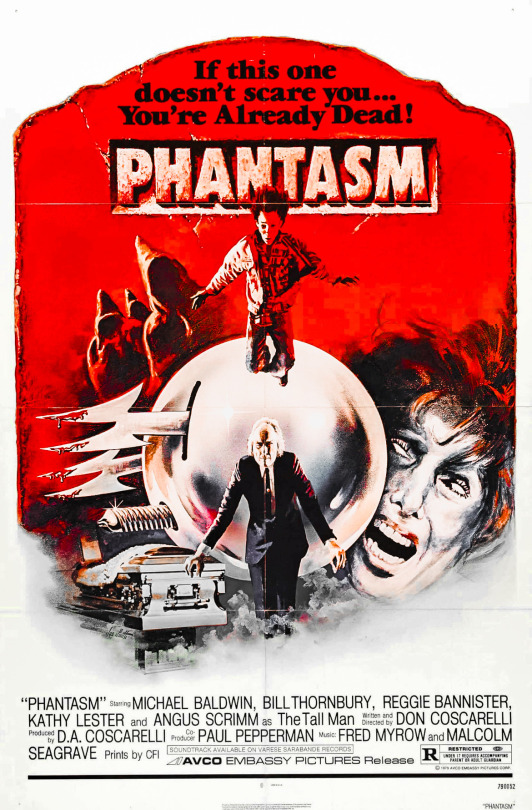



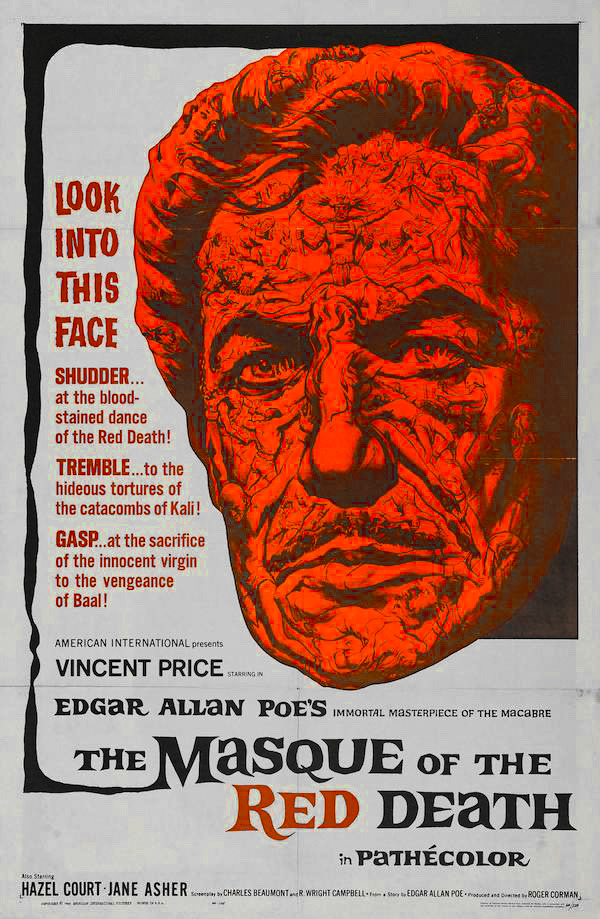

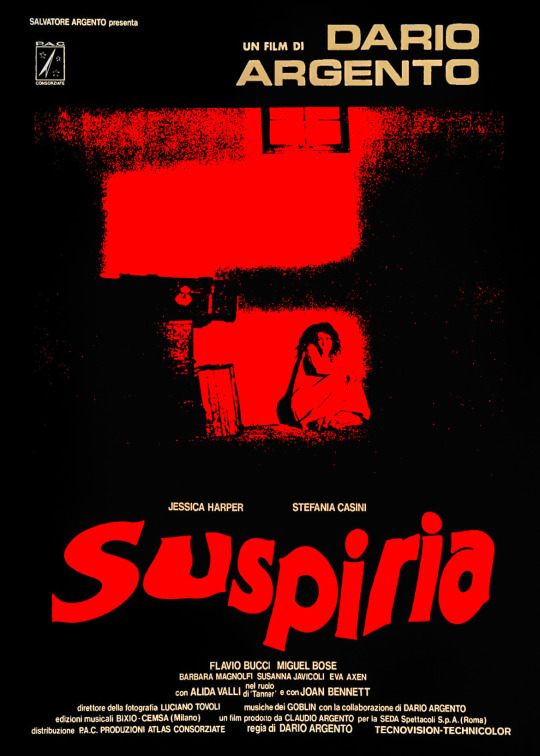
Red - Pain, Blood, Rage
#moving image and sound#design#elements of design#principles of design#colour#contrast#horror#horror movies#posters
2K notes
·
View notes
Text
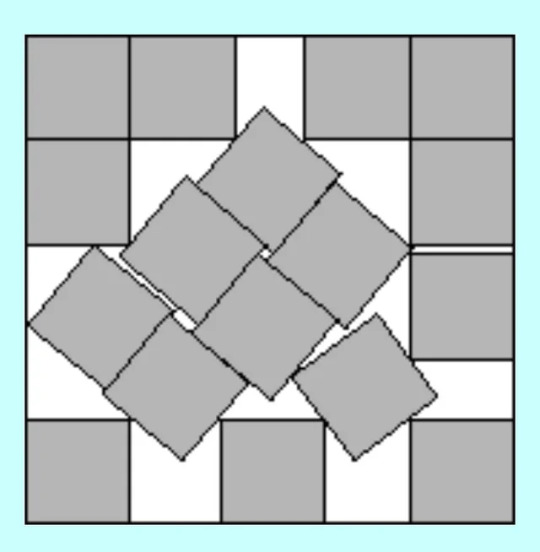
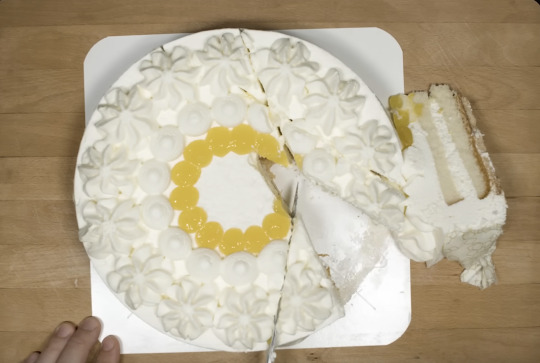

I'd like to offer a graphic design course covering design principles like these
if interested please mail cash, I will mail you back several postcards with handwritten mega.nz links
#unsatisfying videos#videos to annoy ocd people#graphic design is my passion#graphic design is my enemy#optimal packing of 17 squares#sonido repelente tlacuaches#that means possums#graphic design#graphic art#principles of design#inspiration
0 notes
Text
Journaling - Principles of Design
Unity and Variety -
Unity is defined as something "boring" through it's singular form or color it has taken by the artist. An example would be a red cube. Variety is the chaotic contrast, where there are many elements that seem to make the art appear clustered in a chaotic form. An example would be a bedroom with cluttered mess.
Balance -
Balance is the aspect of trying to find equilibrium. Symmetrical balance is when one side of the piece of work is replicated on the other. One example would be butterfly wings. Asymmetrical balance is when something on one side does not mirror the other. One example would be our house, how in the front we have a palm tree to the right and a larger flower tree to the left, so the sides of the house are not similar.
Emphasis and Subordination -
Emphasis is defined as the eyes being drawn to a certain area, where the shape, light, or figure would be the focal point. An example is a picture of two friends standing before a building, they could be in the forefront, therefore being the focal points of the picture. Subordination is defined as having objects of less importance around the focal point, that do nothing essentially to keep us from the point of emphasis, where our eyes are first drawn. An example of this, is when I enter my sister's messy, cluttered room, but I am focused only on her.
Directional Forces -
It is defined as an invisible or actual pathway that leads the eyes in a certain direction. An example is a long sidewalk, where a dog is in the center far away, so the sidewalk is drawing our eyes to that certain area.
Repetition and Rhythm -
Repetition is the regular/frequent occurrence of a pattern or style. An example is Islamic stars that form patterns in buildings with repeating shapes. Rhythm is the same occurrence with related deviations of the same design. An example is the Greek pillars in Greek architecture.
Scale and Proportion -
Scale is defined as the size of two things. An example would be the height difference of someone short standing next to a tall person. Proportion is defined as many parts of a piece compared to a whole. An example is a face, with the small eyes, on a big head, with small ears, and big/small lips.
1 note
·
View note
Text


Part 2 of warm-up art assignments
0 notes
Text
Week #3: Elements and Principles of Design - Moving Image & Sound
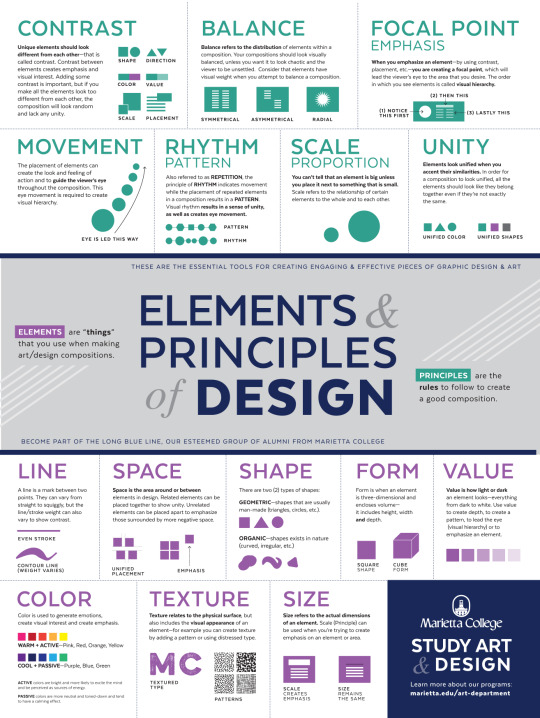
0 notes
Text

Elements and Principles of Art and Design.
0 notes
Text
The Principles of Design
There are 8 different types of design principles and they are called balance, emphasis, movement, proportion, repetition & pattern, rhythm, unity and variety. There are a lot of different types of balance like colour & value, texture, size & quantity, shape, orientation, position & isolation, Asymmetrical balance known as informal balance, symmetrical balance known as formal balance, radial balance and crystallographic balance created by repeating patterns with the same visual weight. Emphasis is all about a design that catches the viewer’s eye on a focal point of the design it means an object is different from the others like the colour, the shape, line value, space and texture of the object. A design that makes the effect of movement like illusion of space, change in direction, use of diagonal or curvy lines, blur objects, repeat similar shapes or objects, using energetic mark making and creating a sense of movement through a progression of images or a comic strip. A good proportion can create a harmony and balance in a work of art like the golden ratio, creating a golden rectangle, standard proportion that appears to be the correct size in comparison to its surroundings, altered proportions of objects have been changed, or appear unrealistic, miniature proportion objects are smaller than normal and monumental proportion objects that are larger than normal. Repetition and pattern can use the elements of art to create a repetition of patterns from lines, shapes, colour or other art elements to make unity and rhythm. Rhythm has regular, random, progressive, alternating that make an interesting and complex version of regular rhythm and flowing by using organic shaped to change direction, twist and bend in a natural feeling pattern. Unity has repetition, similarity, continuation, alignment lining up the edges of elements will cause the viewer to group them together and proximity of closer elements are to each other, the more likely the viewer will see them as a group. Variety focus of using different versions of elements in one work of art to show a successful work of unity, to maintain order and variety to maintain interest.
1 note
·
View note
Text



1 note
·
View note